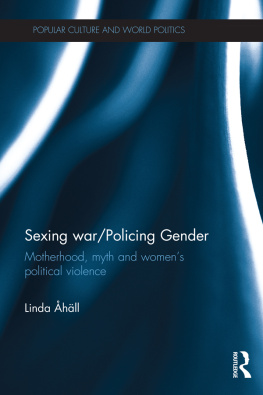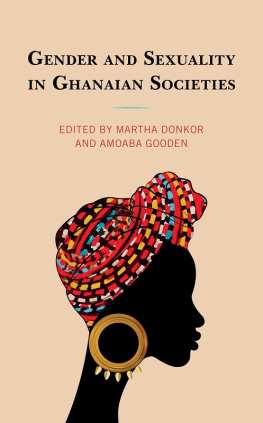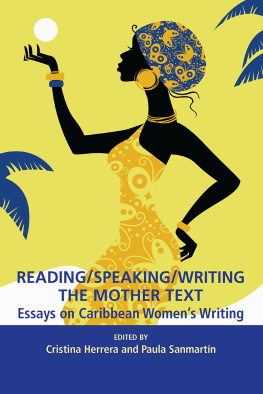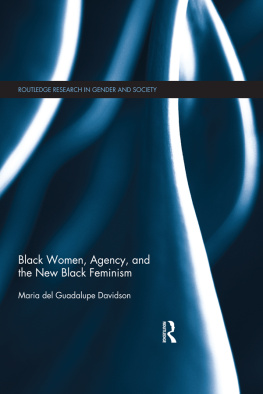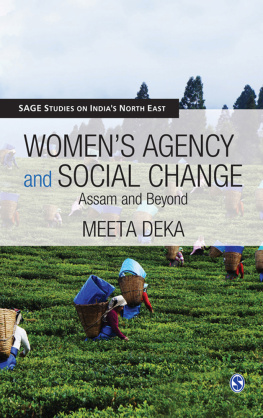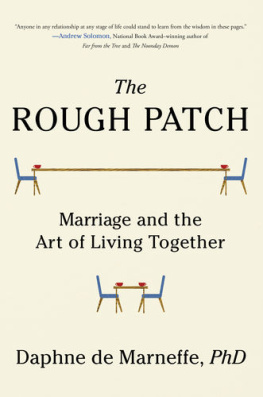Sexing War/Policing Genderz
Historically, there has been reluctance, from mainstream IR scholars as well as feminists, to seriously engage with womens agency in warfare. Instead, scholarship has tended to focus on womens activism for peace or to ignore womens agency altogether.
This book rectifies this omission by exploring the cultural understanding of actors, agents and structures of war and how can we make sense of attitudes towards women, agency and war today. By using a poststructuralist feminist perspective and by analysing empirical cases from a Western war on terror cultural context, hll argues that all types of stories are informed by ideas about motherhood and maternal reproduction as the foundation of sexual difference. This does not only mean that women are judged/read/valued based on the shape of their, maternalised, bodies, rather than what they actually do, but, it means that ideas about motherhood, not motherhood itself, function to police contemporary gender norms and contemporary understandings of agency in war. Overall, this book argues that maternalist war stories function to reiterate traditional heteronormative gender roles. This is how a body politics of war is not only policing gender norms but actually writing sex itself. The body politics of war told through maternalist war stories is a process in which the sexing of war means the policing of gender borders, with motherhood acting as the border agent.
This work will be of interest to students and scholars in areas such as gender, political violence and international relations.
Linda hll is Lecturer in International Relations at Keele University, UK.
Popular Culture and World Politics
Edited by Matt Davies, Newcastle University, Kyle Grayson, Newcastle University, Simon Philpott, Newcastle University, Christina Rowley, University of Bristol, & Jutta Weldes, University of Bristol
The Popular Culture World Politics (PCWP) book series is the forum for leading interdisciplinary research that explores the profound and diverse interconnections between popular culture and world politics. It aims to bring further innovation, rigor, and recognition to this emerging sub-field of international relations.
To these ends, the PCWP series is interested in various themes, from the juxtaposition of cultural artefacts that are increasingly global in scope and regional, local and domestic forms of production, distribution and consumption; to the confrontations between cultural life and global political, social, and economic forces; to the new or emergent forms of politics that result from the rescaling or internationalization of popular culture.
Similarly, the series provides a venue for work that explores the effects of new technologies and new media on established practices of representation and the making of political meaning. It encourages engagement with popular culture as a means for contesting powerful narratives of particular events and political settlements as well as explorations of the ways that popular culture informs mainstream political discourse. The series promotes investigation into how popular culture contributes to changing perceptions of time, space, scale, identity, and participation while establishing the outer limits of what is popularly understood as political or cultural.
In addition to film, television, literature, and art, the series actively encourages research into diverse artefacts including sound, music, food cultures, gaming, design, architecture, programming, leisure, sport, fandom and celebrity. The series is fiercely pluralist in its approaches to the study of popular culture and world politics and is interested in the past, present, and future cultural dimensions of hegemony, resistance and power.
Gender, Violence and Popular Culture
Telling stories
Laura J. Shepherd
Aesthetic Modernism and Masculinity in Fascist Italy
John Champagne
Genre, Gender and the Effects of Neoliberalism
The new millennium Hollywood rom com
Betty Kaklamanidou
Battlestar Galactica and International Relations
Edited by Iver B. Neumann and Nicholas J. Kiersey
Death of Feminism?
Is popular & commercial culture undermining womens rights?
Penny Griffin
The Politics of HBOs The Wire
Everything is connected
Edited by Shirin Deylami and Jonathan Havercroft
Sexing war/Policing Gender
Motherhood, myth and womens political violence
Linda hll
First published 2015
by Routledge
2 Park Square, Milton Park, Abingdon, Oxon OX14 4RN
and by Routledge
711 Third Avenue, New York, NY 10017
Routledge is an imprint of the Taylor & Francis Group, an informa business
2015 Linda hll
The right of Linda hll to be identified as the author of this work has been asserted by her in accordance with the Copyright, Designs and Patent Act 1988.
All rights reserved. No part of this book may be reprinted or reproduced or utilised in any form or by any electronic, mechanical, or other means, now known or hereafter invented, including photocopying and recording, or in any information storage or retrieval system, without permission in writing from the publishers.
Trademark notice: Product or corporate names may be trademarks or registered trademarks, and are used only for identification and explanation without intent to infringe.
British Library Cataloguing in Publication Data
A catalogue record for this book is available from the British Library
Library of Congress Cataloging in Publication Data
hll, Linda, 1979-
Sexing war/policing gender : motherhood, myth and womens political violence / Linda Ahall.
pages cm. (Popular culture and world politics)
Includes bibliographical references and index.
1. Sex rolePolitical aspects. 2. Women and war. 3. Political violence. 4. Feminism. 5. Feminist theory. I. Title.
HQ1075.A355 2015
305.4201dc23
2014034255
ISBN: 978-0-415-72044-1 (hbk)
ISBN: 978-1-315-86696-3 (ebk)
Kyle Grayson
Co-editor of the Popular Culture World Politics Series
The intersections of identity and violence have long influenced dynamics central to popular culture and world politics. Representations of violence as well as processes through which these representations become mythologies of hidden ideological abuse are important (p. 1). How violence is understood and made meaningful involves a series of deeply political acts. As such, popular culture is an important site through which the politics of violence is produced, mobilised and circulated.
In this volume, Linda hll analyses agency as a grammatical construct in order to explore the possibilities and limits that shape predominant understandings of violence. In focussing on cultural representations of women associated with violent acts, her aim is not to determine why they have engaged in violence but rather to demonstrate how these acts of violence, in the terminology of Jacques Rancire, have been made sensible. It is here that the logics of security and gender meet, producing the myth of the sacrifical, nurturing mother (p. 10). hll then traces how this myth functions to discipline our understandings of violence and women who commit violent acts. As she argues, contemporary examples of female agency in political violence are still negotiated, communicated, and made sense of, through ideas of motherhood (p. 15). The conclusion is both inescapable and important: motherhood is central to situating war and violence in world politics.

